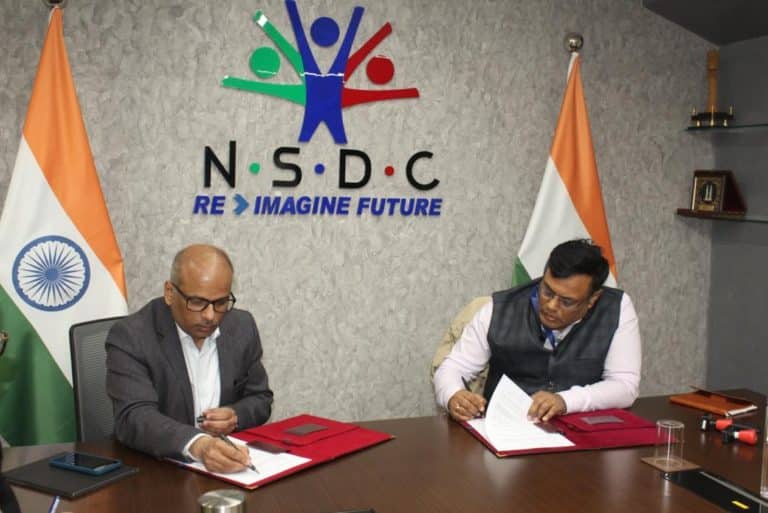Unlike their US counterparts, Indian AI startups know how to run their business even without large investments.
Indian AI music company Beatoven.ai recently raised $1.3 million in its pre-series A round led by Entrepreneur First and Capital 2B, bringing its total funding to $2.42 million. Today, it is challenging the likes of Udio and Suno AI, which have raised $10 million and $125 million, respectively.
“Companies like Udio received money from a16z as they hold a completely different view on copyrights. They argue that training AI on copyrighted materials is indeed fair use and doesn’t amount to theft of intellectual property,” said Mansoor Rahimat Khan, the co-founder of Beatoven.ai, in an exclusive interaction with AIM.
Meanwhile, Beatoven’s model has been certified as “Fairly Trained” and also endorsed by AI for Music as an “ethically trained AI model”. Khan said that the company aims to pursue more licensing deals to expand its music libraries. He shared that when he started the company, his family members were the first to create data to train the models.
“Because of the artist-first approach we took, none of them protested. In fact, they supported Beatoven. My initial set of recordings to build this model came from my family,” said Khan.
Talking about jugaad, Khan said that they use GPUs primarily for training purposes, while CPUs are used for inferencing. “We have optimised it in such a way that during production we don’t use GPUs when the users are prompting. This helps us keep our costs low,” he said, adding that when it comes to Indian labels, though, they are not yet open to licensing deals.
There’s More
Tech Mahindra’s CP Gurnani recently told AIM that they built Project Indus for under $5 billion. Citing the example of ISRO’s Mars Mission, he said that they spent much less compared to NASA, thanks to the ‘frugal innovation’ and ‘jugaad’ mindset in India.
“I have never believed that funding is the reason why you or I succeed. You need the bare minimum to be able to do it. Your product has to succeed, your people have to believe in you, and there’s so much more,” said Gurnani.
In line with this belief, Bengaluru-based AI agent platform company Kogo aims to reach an annual recurring revenue (ARR) of INR 20 crore by 2025. The company has raised $3 million to date and reported a revenue of INR 2.5 crore for the fiscal year 2023-24.
Led by co-founder and CEO Raj K Gopalakrishnan, Kogo has developed patent-pending technology supporting small and large language models (SLMs and LLMs) for various industries. Kogo’s solutions span sales, research, operations, data management, and customer service.
The company’s AI low-code platform, the KOGO AI Operating System, enables companies to quickly create AI agents that converse in Indic languages.
On the other hand, IIT-alum-founded startup Rabbitt.AI raised $2.1 million from TC Group of Companies. The GenAI startup enables businesses to create and deploy advanced AI applications with tools for custom LLM development, RAG fine-tuning, and data-centric AI.
Their platform features MLOps integration and voice bot AI agents, and prioritises privacy-first strategies in AI deployment. Founder Harneet SN said that when he started the company, he applied all the tricks of the trade to keep the costs of running the company low.
In the initial days, they used the free credits provided by Google and AWS. “We received $300,000 worth of credits from Google to optimise our operations,” said Harneet. He further said, “For the longest time, my website was hosted on Vercel, which is a free hosting tool, so I wasn’t even paying INR 700 to 1000 per month for website hosting.”
At the same time, Jio-backed startup TWO AI is making waves with its recent launch of ChatSUTRA and Geniya, alternatives to ChatGPT and Perplexity AI, respectively. The company has raised $20 million to date. This is minuscule when compared with the $13 billion raised by OpenAI and Perplexity’s $165 million.
Another Indian startup, Unscript, recently converted a single photo into a full-fledged video, generating head and eye movements, facial expressions, voice modulations, and body language, achieving studio-quality results in under 2 minutes, significantly reducing manual shooting efforts. The company has raised $1.25 million till date.
Interestingly, this new upgrade surpasses Google Vlogger and rivals Microsoft’s VASA-1 and Alibaba’s EMO, making it ideal for brands, marketing agencies, and virtual influencers, with over 50 top companies already benefiting from its cost-effective, scalable video production capabilities.
India is Safe from AI Bubble
While many in the West fear that the AI bubble might burst soon, the situation in India appears quite different, with investors hesitant to spend money. Despite the global AI hype generating a flood of funding, Indian investors’ approach is cautionary and focused on only a select few opportunities.
In an exclusive interview with AIM, Vishnu Vardhan, the founder and CEO of SML and Vizzhy, the creators of Hanooman, said that most Indian investors are reluctant to invest in research and deep-tech startups.
“Many VCs do not even have a thesis on how to invest in deep tech,” Vardhan noted, referring to the lack of informed deep-tech investors in the country. In India, funding for AI startups — including those working on infrastructure and services — dropped nearly 80% in 2023 to $113.4 million from $554.7 million in 2022, according to a Tracxn data.
Funding for AI startups in India totalled $8.2 million in the April-June 2024 quarter. In contrast, AI startups in the US received $27 billion in the same period, representing nearly half of all startup funding in the country.
While these numbers seem reasonable, they are comparatively much lower when looking at the global standard set by OpenAI, Anthropic, or Mistral, who have raised billions of dollars.
For reference, Sarvam AI, which has announced its intention of building foundational AI models, has raised a total of $41 million and Ola Krutrim raised $50 million becoming India’s first generative AI unicorn.
Speaking with AIM, Soket AI Labs’ founder & CEO Abhishek Upperwal revealed that currently, funding is just enough to make do for AI research within a startup. “Yes, there are fewer funds available here as compared to any foreign markets, but I also believe that we can maybe make do with that particular fund and then ultimately grow in scale after the seed stage,” said Upperwal.
He explained that for the seed stage in India, a funding of $5 million or $10 million is still a decent amount. This roughly translates to around INR 40-50 crores. This is still minuscule when compared to the 100s of millions raised by companies in the West.
“If VCs can trust these companies in the generative AI space, we can do wonderful stuff for sure,” he said.
If not investors, the Indian government can also play a role. According to IndiaAIMission, the Union government has allocated INR 551.75 crore to the AI Mission to advance AI research and applications. Earlier, in March 2024, the Cabinet had approved INR 10,354 crore for the AI Mission, which includes a provision of 10,000 graphics processing units for use by start-ups and universities.
































